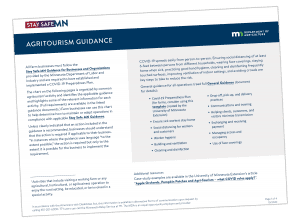UPDATED MARCH 2021 In January 2018, the Minnesota Department of Health launched Safer Farm Animal Contact Exhibits (Safer FACEs), a training program for
KEEPING FARM VISITORS SAFE AND HEALTHY
Agritourism involves activities that bring visitors to the farm. It is growing in popularity across the nation.
It can be a great way for farmers to add supplemental income but it does come with an additional set of responsibilities. The growth of agritourism is connecting more and more people directly with agriculture and allowing them to better understand where their food comes from. With that comes the opportunity for them to learn about the health and safety issues related to agriculture, including protecting themselves.
Protecting the safety of farm visitors is important for both the visitors and for farms hosting these events.

Click through the tabs below to view our printable and digital resources and training materials for agritourism.
Animal Agritourism: Lay out a Plan for Success
Release Date: August 4, 2017
Download mp4 (right click and save file)
Farms, Fairs, and Fun – Be sure to wash your hands
Release Date: August 11, 2016
Download mp4 (right click and save file)
Agritourism: Prepare and Plan for Guests on Your Farm
Release Date: November 1, 2016
Download mp4 (right click and save file)
Keep Food Safe – 4H Food Stand Worker Training
Release Date: February 16, 2019
Download mp4 (right click and save file)
6 Tips for Biosecurity – A Guide for Youth Livestock Exhibitors
Release Date: February 16, 2019
Download mp4 (right click and save file)
OTHER RESOURCES
Agritourism Guidance Document
All farm businesses must follow the
Stay Safe MN Guidance for Businesses and Organizations
provided by the Minnesota Department of Labor and
Industry and are required to have established and
implemented a COVID-19 Preparedness Plan.
 Can COVID-19 infect my herd, flock, or pets?
Can COVID-19 infect my herd, flock, or pets?
According to the CDC, humans seem more likely to give COVID-19 to animals than vice versa. A limited number of animals in the United States have been infected with COVID-19.
https://www.aphis.usda.gov/animal_health/one_health/downloads/sars-cov2-in-animals.pdf
If you are sick, restrict contact with pets just as you would around other people. It is suggested that people with COVID-19 limit contact around all animals until more information is known about the virus and the susceptibility of various animals to the virus.
At this time, it appears that livestock or poultry are unlikely to get SARS-CoV-2 infection nor transmit the virus to humans.
COVID-19 in animals that have been confirmed by USDA’s National Veterinary Services Laboratories.
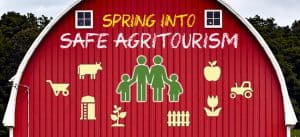 Spring into Safe Agritourism
Spring into Safe Agritourism
2019 Agritourism Campaign
#SafeAgritourism #SaferFACEs
The “Spring into Safe Agritourism” 2019 campaign may have ended, but you can share and promote safe agritourism ANY time of the year!

A HUGE ASSET. Great information, well worth the time.
[Handwashing posters] They look good are simple and easy and quick to read. I like them.
The training is great. What I really like about this training is that it is something I can have all my volunteers do.
I really enjoyed the course. It was easy, visual, and didn’t take much time to complete. I felt like what I learned was valuable. I liked how key points were addressed multiple times to reinforce that knowledge such as calves being a high-risk animal for young children, etc.
The topics were informative and I feel we will be better prepared for our county fair.
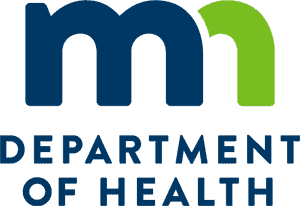
MINNESOTA DEPARTMENT OF HEALTH CONTACT INFORMATION:
If you have specific questions about hosting an agritourism event on your farm, contact:
Carrie Klumb, Minnesota Department of Health
carrie.klumb@state.mn.us
651-201-5414 or 1-877-676-5414
RELATED NEWS

SPOTLIGHT: Safer FACEs Online Training Program for Agritourism Venues
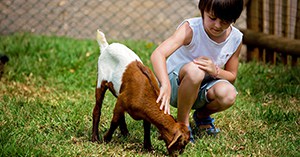
SPOTLIGHT: Invisible on the Farm – Bacterial Infections From Animals to People
JANUARY 2021 What images come to mind when you think of hazards on the farm – large tractors, grain bins, ATV’s, chemicals? These are all very
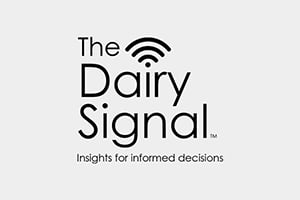
Don’t Kiss the Calves
AUGUST 2020 Dr. Jeff Bender was one of the featured speakers on the August 26, 2020 episode of The Dairy Signal™, a live streamed event hosted by the
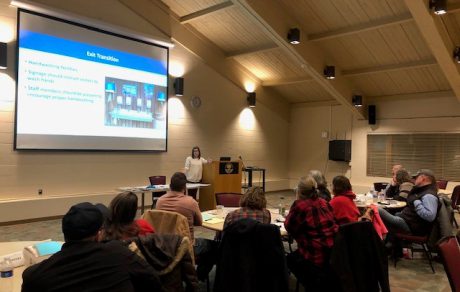
Fun on the Farm: Agritourism Workshop
Last week we hosted our sixth Agritourism Workshop in Andover, Minnesota. These workshops are co-hosted by the Minnesota Department of Health Zoonotic
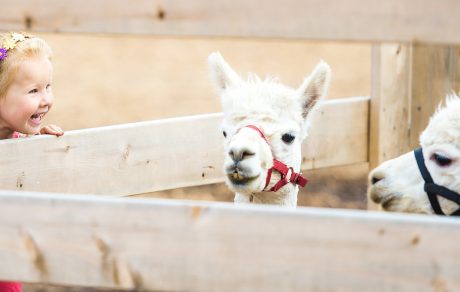
Olmsted County’s New Video Promotes Petting Zoo Set-Up Safety
Petting zoos are a common attraction at fairs, festivals and other events. It is hard to resist picking up a furry friend or letting the baby calf lick
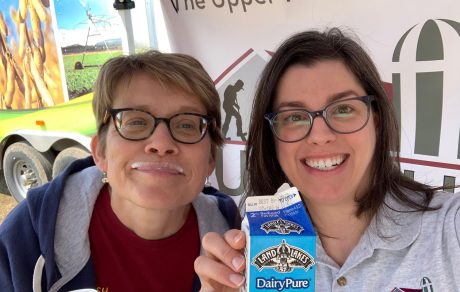
Cows Don’t Take Time Off
There is no doubt, owning and operating a dairy farm is a full time job. The beginning of June kicks off two popular events National Dairy Month and
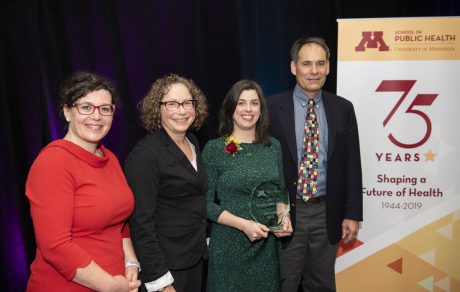
Carrie Klumb Receives 2019 SPH Emerging Leader Award
Carrie Klumb, from the Minnesota Department of Health was recently recognized by the School of Public Health and received the 2019 Emerging Leader
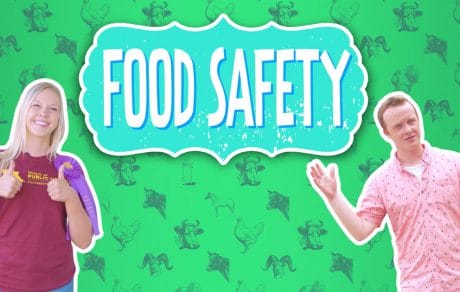
SPOTLIGHT: Head, Heart, Hands, and Health
UMASH, Minnesota 4-H, and the Minnesota Department of Health (MDH) joined together to produce two new videos for 4-H clubs on the topics of biosecurity
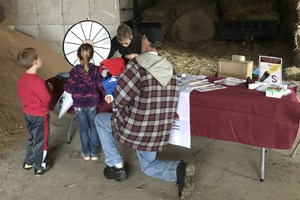
Eat your Breakfast (on the Farm)
Breakfast on the Farm is an annual event that draws people from both rural and urban areas to explore the workings of farm production and educate consumers
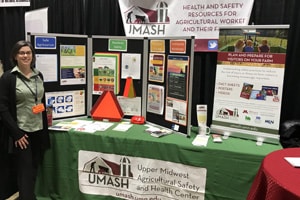
Agritourism – It’s a new word to many people
UMASH connected with Township Officials across the state at the Minnesota Association of Townships annual meeting on November 16-17, 2017. Visitors to
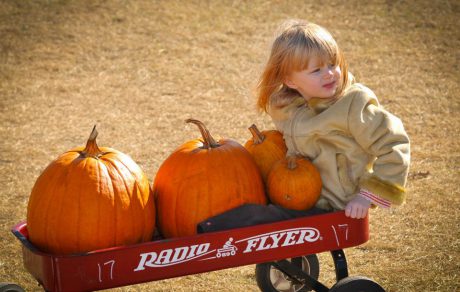
SPOTLIGHT: Agritourism
Keeping Your Visitors Happy and Healthy. Agritourism is an opportunity for farms to allow guests onto the premises to enjoy some kind of agriculture experience.
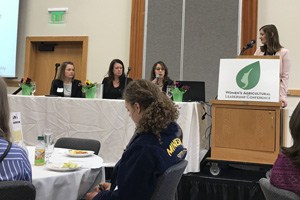
UMASH at Women’s Agricultural Leadership Conference
UMASH was one of the sponsors of the Women's Agricultural Leadership Conference "Agriculture 2017: Embracing Innovation" at the Minnesota Landscape Arboretum
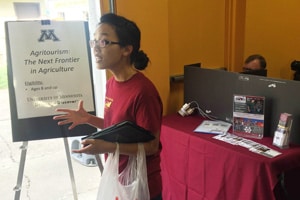
UMASH at the Great Minnesota Get Together
UMASH was one of many studies in the University of Minnesota’s Driven to Discover Research Building activities during the 12 days of the 2016 Minnesota
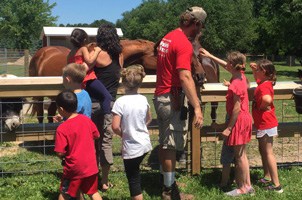
SPOTLIGHT: The Evolution of the Healthy Fairs Project – The Power of Relationships
SEPTEMBER 2016 Natalie Loots UMASH Evaluation Team Research Assistant, Division of Environmental Health Sciences, University of Minnesota School of Public

Agritourism Safety Website Unveils Upgrades, Marsha Salzwedel Honored by National Agritourism Association
A national survey of agritourism operators conducted by the National Children’s Center for Rural and Agricultural Health and Safety guided
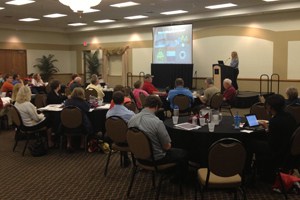
Healthy Fairs Workshops presented by the Minnesota Department of Health and the Minnesota Board of Animal Health
The Minnesota Department of Health and the Minnesota Board of Animal Health recently hosted Healthy Fairs Workshops aimed at those putting on county fairs.

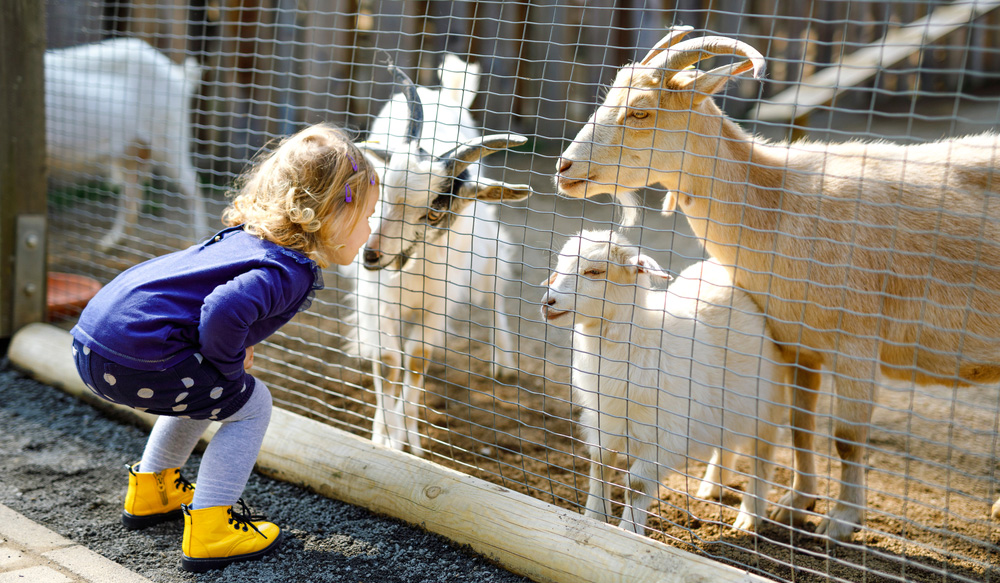
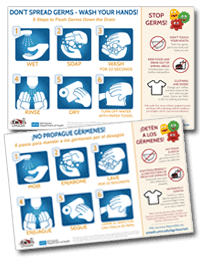
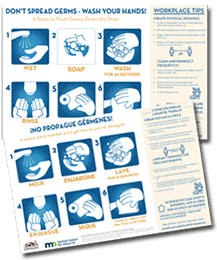
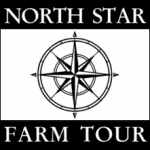 Available in 19 languages!
Available in 19 languages!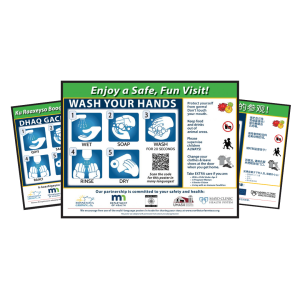

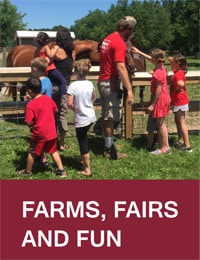
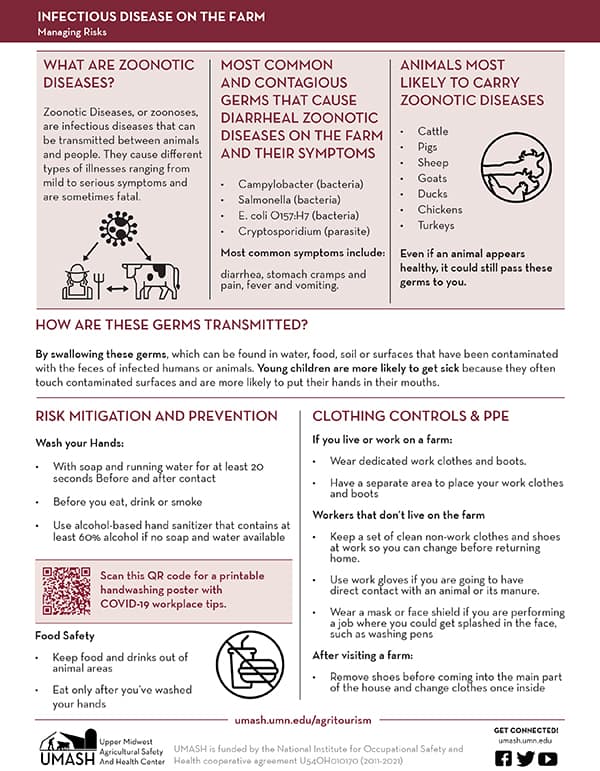
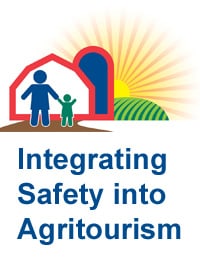
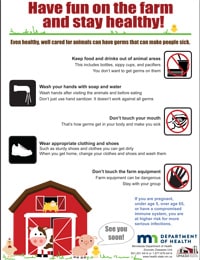
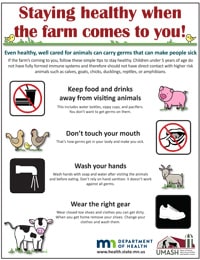
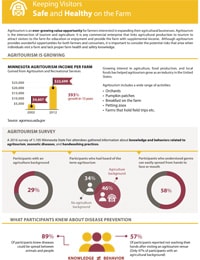
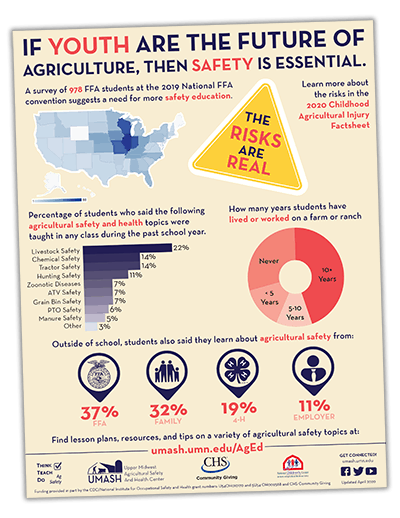

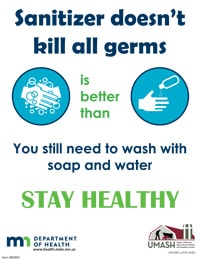
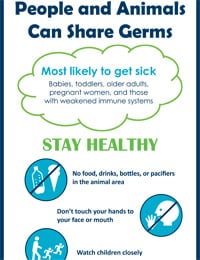
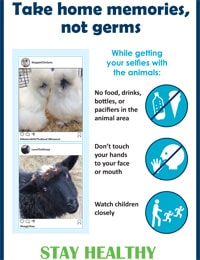
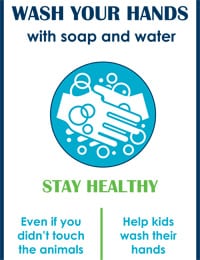
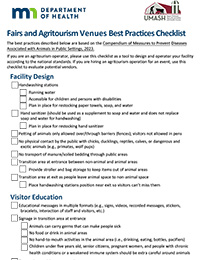
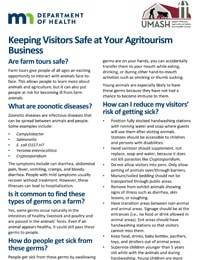

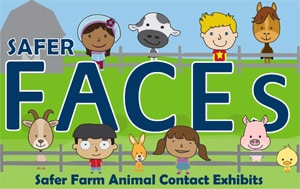
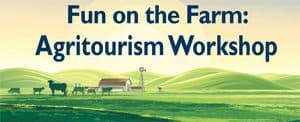
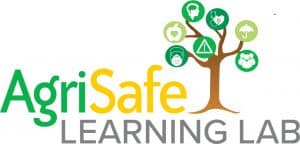 Agritourism can be a great way to add supplemental income to your farm but it does come with an additional set of responsibilities. If you are currently running an agritourism operation or are thinking about making this an addition to your farm, you should become familiar with the Compendium of Measures to Prevent Disease Associated with Animals in Public Settings. Following the guidelines outlined in the Compendium will help you make your farm as safe as possible for visitors and protect your assets.
Agritourism can be a great way to add supplemental income to your farm but it does come with an additional set of responsibilities. If you are currently running an agritourism operation or are thinking about making this an addition to your farm, you should become familiar with the Compendium of Measures to Prevent Disease Associated with Animals in Public Settings. Following the guidelines outlined in the Compendium will help you make your farm as safe as possible for visitors and protect your assets.